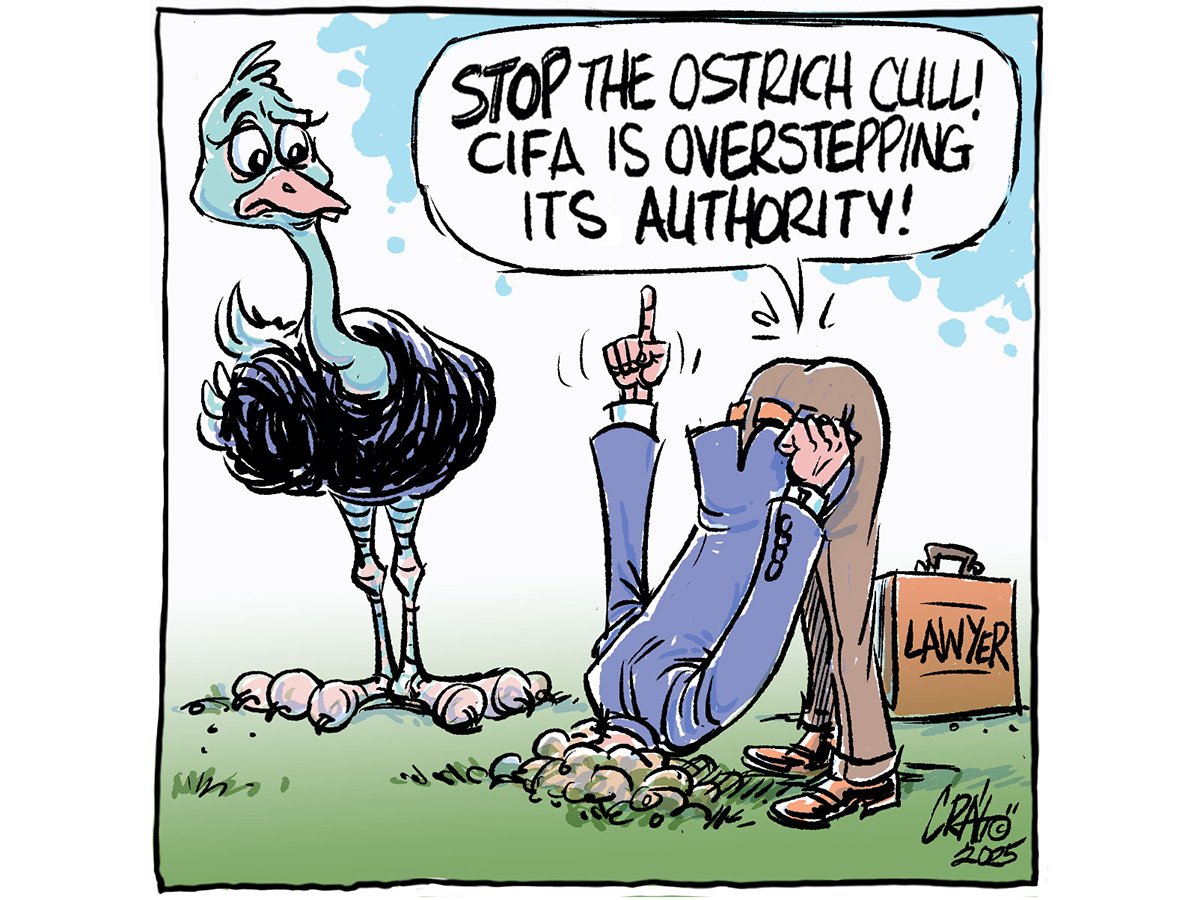Despite the hoopla surrounding the recent Canadian Wheat Board elections, less than half of eligible voters took the time to vote.
It wasn’t for the lack of encouragement.
The open market candidates ran a more organized and highly publicized campaign than CWB supporters, especially through the organization CARE (an acronym for choice, accountability, responsibility and efficiency) that issued News release
newscriticizing CWB policies and urging farmers to vote for dual market candidates.
There was also the controversial but timely jailing of 13 Alberta farmers for Customs Act and wheat export violations committed in 1996. They gained national media attention and a platform to express their concerns about the wheat board and need for change.
Read Also

The Canadian Food Inspection Agency’s animal health efforts require producer support
Livestock producers should be concerned by how an ostrich farm is using crowd funding to help it defy a Canadian Food Inspection Agency order to destroy more than 300 birds.
For the 43.3 percent who exercised their right to vote, the majority still support single desk selling.
Support for single desk selling candidates increased to 56 percent of the votes, up from 48 percent in 2000. Four out of the five directorships went to single desk candidates.
But as CARE’s chair Alanna Koch stressed, there remains a high percentage of farmers who support the open market candidates. The results were close in districts they didn’t win. Koch notes less than a thousand votes separated three candidates from victory.
So what was learned from the election, and what does it mean for the future?
Most obvious was the passion that arose on both sides and the role philosophy plays in the Canadian Wheat Board debate. Reasonable debate was sometimes lost in politicking.
But hopefully voters also gave careful consideration to the qualifications of the candidates. The Canadian Wheat Board is a complicated, significant player in the international grain industry. It is one of Canada’s largest exporters, with annual sales revenue of about $5 billion when it markets its five-year average of almost 20 million tonnes of grain.
In 2002-03, the CWB will be marketing 8.7 million tonnes of wheat, durum and barley. The CWB has 200 or more customers in more than 70 countries.
Being a director representing 85,000 farmers in Western Canada demands professionalism and the ability to handle responsibilities and commitments.
Each director owes more than blind loyalty to those who voted for him or to a single philosophy. A director must, to the best of his ability, obtain and analyze facts with an open mind, and influence sound business decisions that benefit the majority of farmers within the board’s jurisdiction.
The election helped stir good debate and gave rise to good ideas on how to improve the CWB and grain marketing for western Canadian farmers.
However, it also sadly revealed the level of apathy in the low voter turnout and the disturbing acrimony that exists between some farmers.














